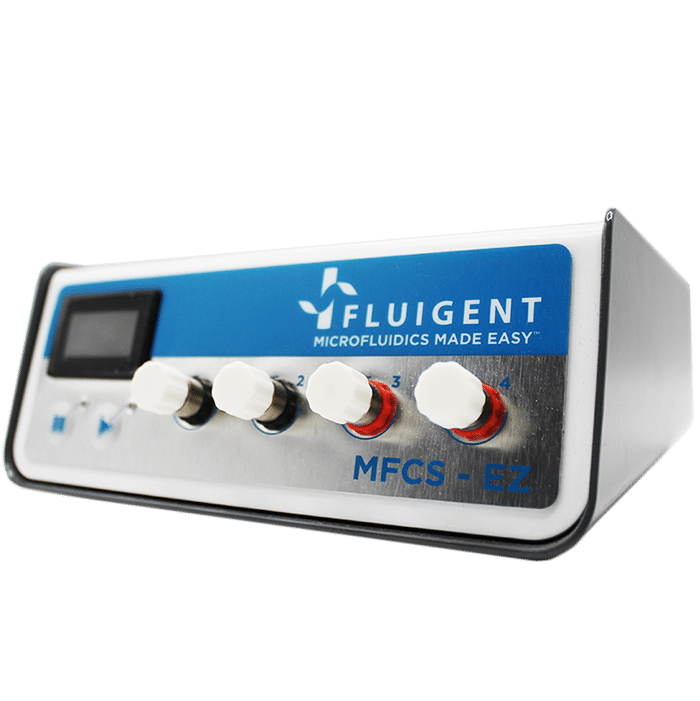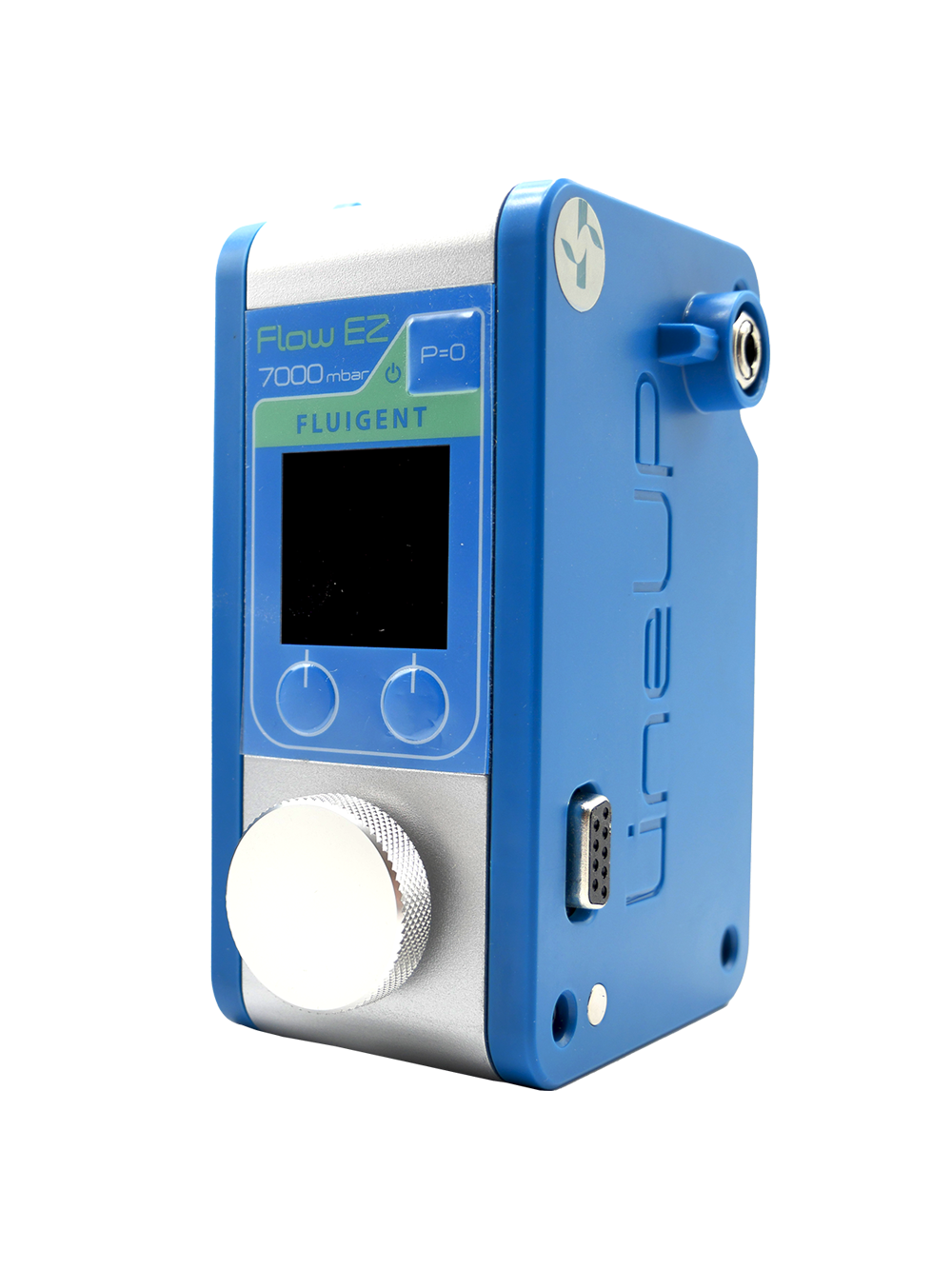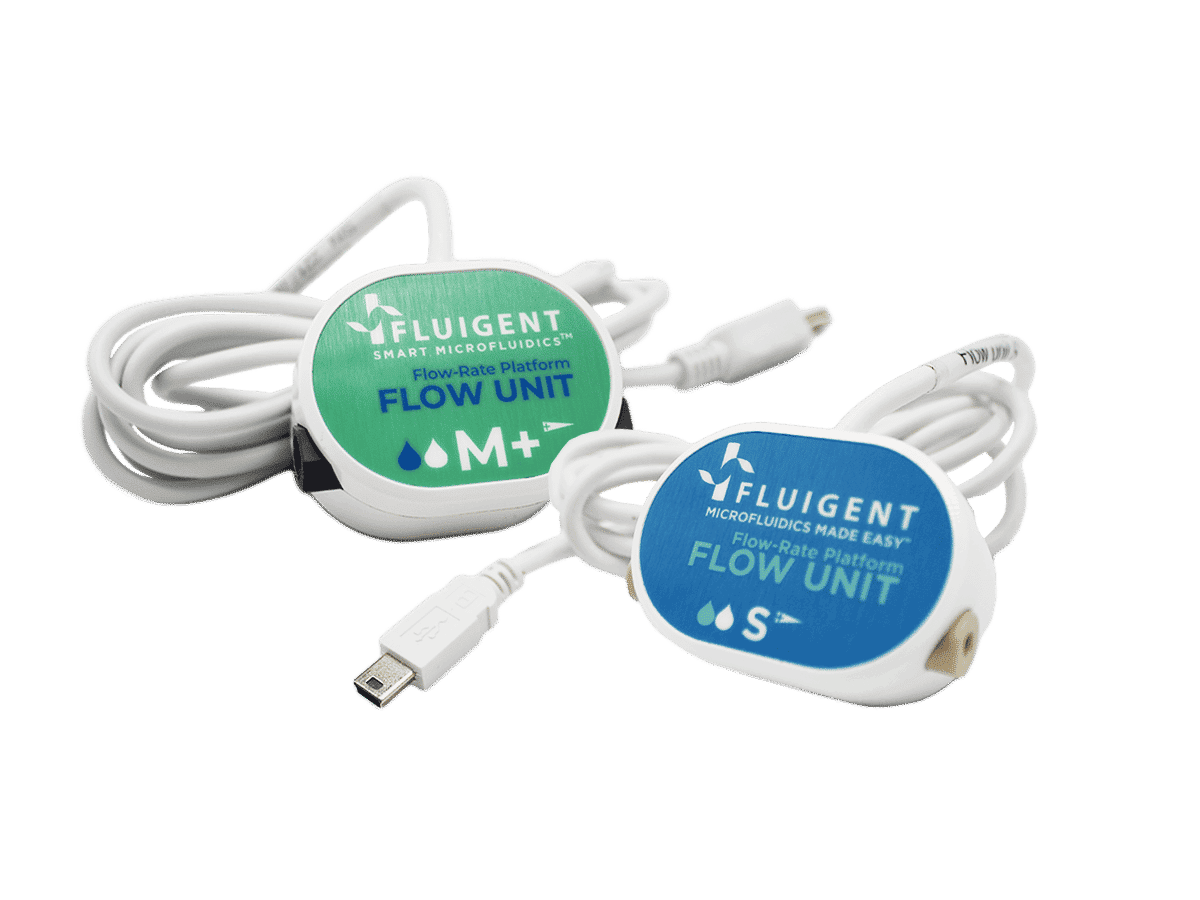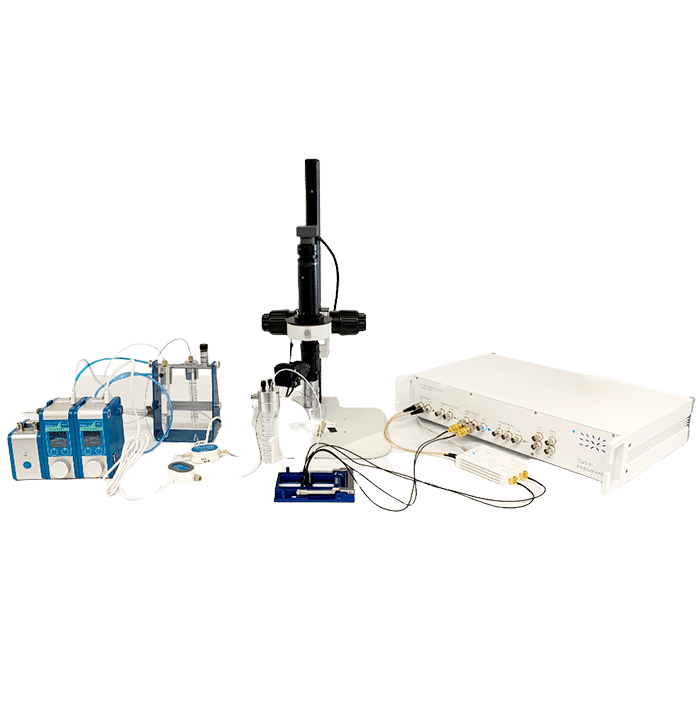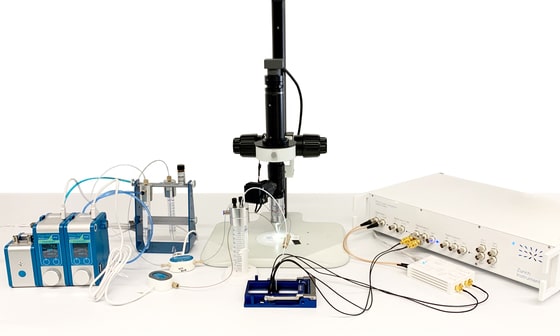Success story of SEED Biosciences: Single cell impedance analysis
SEED Biosciences: An EPFL Spin-Off
SEED Biosciences is an award-winning Swiss startup, directed by Georges Muller (CEO) and David Bonzon (CTO) that provide innovative solutions for single-cell assays. The team consisting of seven engineers and biologists that have developed with the Dispencell: a compact pipetting robot engineered to host an impedance analyzer for detection of single cells at high resolution and a low-pressure pump for gentle single-cell dispensing.
The core technology was developed and patented at EPFL, the Swiss Federal Institute of Technology in Lausanne, and the startup is now based at the Biopôle: a life sciences campus in Lausanne, Switzerland, home to more than 100 of the world’s most innovative life sciences companies and research groups.

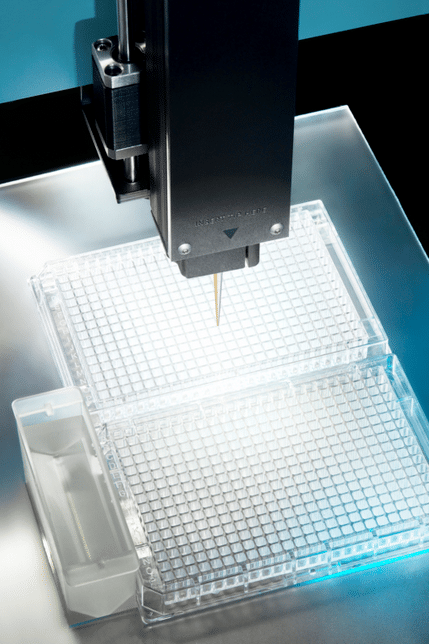

From proof of concept to a startup company
The story of SEED Biosciences started at EPFL at the Microsystems Laboratory 4 (LMIS4) and the Laboratory of Stem Cells Dynamic (LDCS). The main research axes of LMIS4 are in BioMEMS, microfluidics, nanofluidics, and bioelectronic implants. Their current focus is on applications in microsystems for handling, analysis, and culture of biological cells. Researchers at LDCS were experts in cell biology with strong skills in complex cell culture systems.
Single-cell isolation is a key enabling step in many biological processes, including the production of biologics, cancer diagnosis, stem cell therapies, and personalized medicine. A large proportion of scientists repeatedly dilute cells to maximize the occurrences of a given cell, which is a costly and time-consuming process. In order to offer an alternative method, LMIS4 proposed a few years ago the project of dispensing exactly one cell on well plates in a fast and automated manner to two Ph.D. students – David Bonzon and Georges Muller.
After several years of hard work, Bonzon and Muller were ready to unveil their device called Dispencell; they next created SEED Biosciences and, in association with other researchers, just published two articles in SLAS Technology, in which Fluigent instruments were used.
„Several systems have been introduced over the past few years, but ours – called Dispencell – is the first to tick all the boxes. It is easy to use, doesn’t affect cell functions, can be sterilized, improves traceability, and more.“
The device is initially intended for the pharmaceutical industry but also has promising applications in personalized medicine. SEED Biosciences is currently carrying out a funding round to support its market launch.
Fluigent expertise for precise ans smooth pressure-based cell pipetting
In a paper first published in SLAS Technology (2020), Bonzon et al. reported the modeling, designing, and testing of their disposable pipet tip that integrates a cell sensor. They next demonstrated in a second paper (SLAS Technology 2020) the functionality of their system for by isolating single stem cells using an impedance-based procedure. We briefly describe the system and present partial results obtained in these papers.
Cell injection and single cell impedance analysis
The cloning pipet was composed of the MFCS-FLEX (former MFCS-EZ), a pressure-based microfluidic flow controller, an impedance analyzer, and a control unit. The data sent by the single cell impedance analyzer were analyzed using an internally developed software that controlled the micropump such that one cell was dispensed at a time.1
When a single cell is required, the pressure-based flow controller with a range of -25 to +25 mbar starts the flow of the previously loaded media from the sensing tip. The pumping system consists of a pressure/vacuum pump capable of both aspirating to load the tip and dispensing the media containing the particle.2
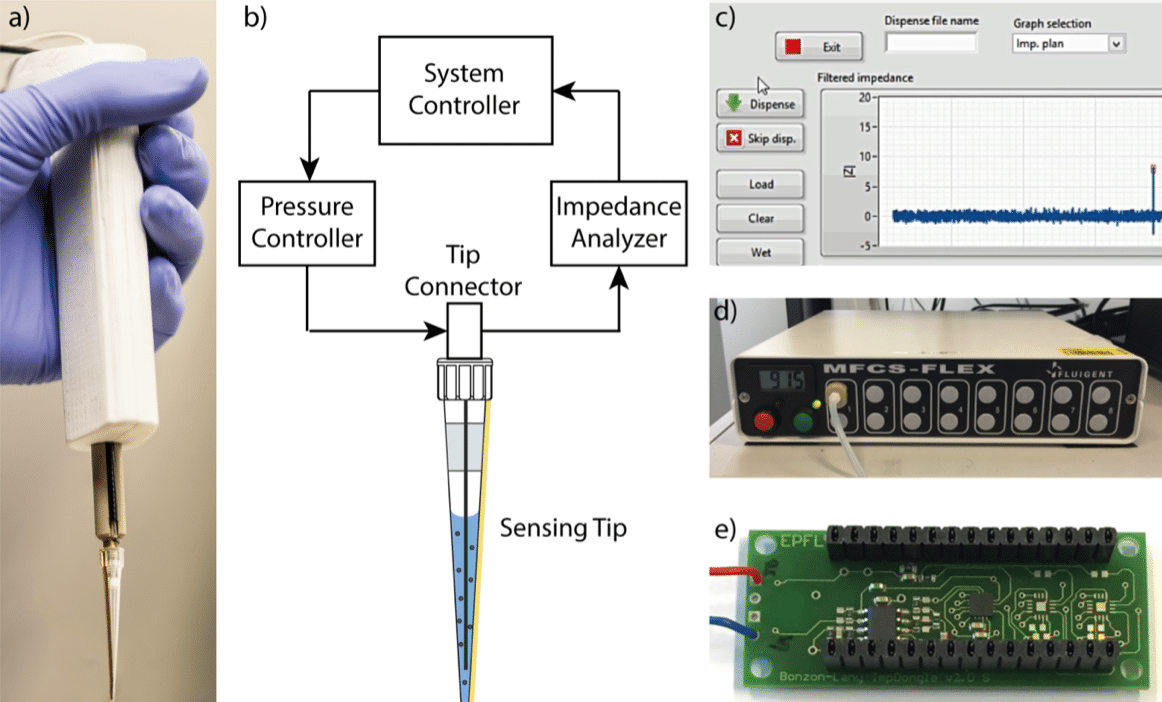
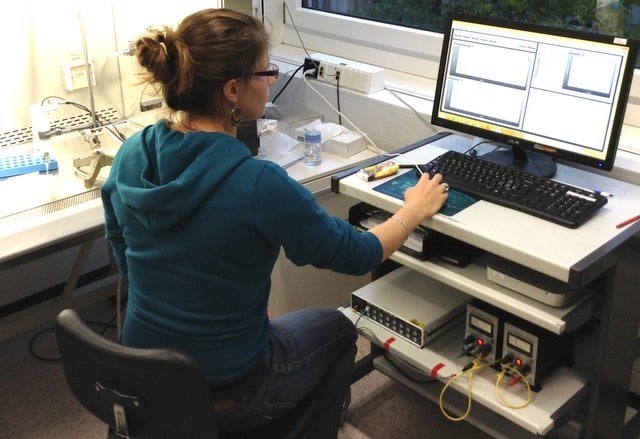
In this paper, the pipet is programmed to aspirate 20 μL of cloning media containing 104 cells/mL. Next, the tip of the pipet is rinsed in media and then gently immersed into the center of a cloning culture dish filled with cell-type-specific culture media. The user then clicks on the user interface to command the isolation of a single cell and the recording of the impedance. As a single cell passes through the Coulter aperture to flow into the culture dish, it leaves an electrical signature that appears as a unique peak on the computer screen.
Simultaneously, a sound is emitted to inform the user that a cell has been isolated. At the end of the experiment, each impedance profile is magnified and examined in detail. A single and sharp peak is the signature of a single cell, whereas multiple peaks result from doublets, multiple cells, and aggregates.1
With these papers, the researchers developed and validated an impedance-based procedure to isolate single stem cells using an engineered cloning pipet composed of a Fluigent microfluidic flow controllers, an impedance analyzer, and a control unit. This technology permits the efficient and traceable isolation of living cells, stem cells, and cancer stem cells that can be individually expanded in culture and transplanted.

“The Fluigent MFCS controller allowed us a quick and hassle-free development of our solution focusing on our real application! This has also been accelerated by the dedicated and professional support we got from the amazing Fluigent team.”
Dr. David Bonzon – CTO & Cofounder – SEED BIOSCIENCES
Related Products
Expertises & Resources
References
- Muller, G. et al. Traceable Impedance-Based Dispensing and Cloning of Living Single Cells. SLAS Technol. 25, (2020).
- Bonzon, D. et al. Impedance-Based Single-Cell Pipetting. SLAS Technol. (2020) doi:10.1177/2472630320911636.
SEED Biosciences website: seedbiosciences.com
